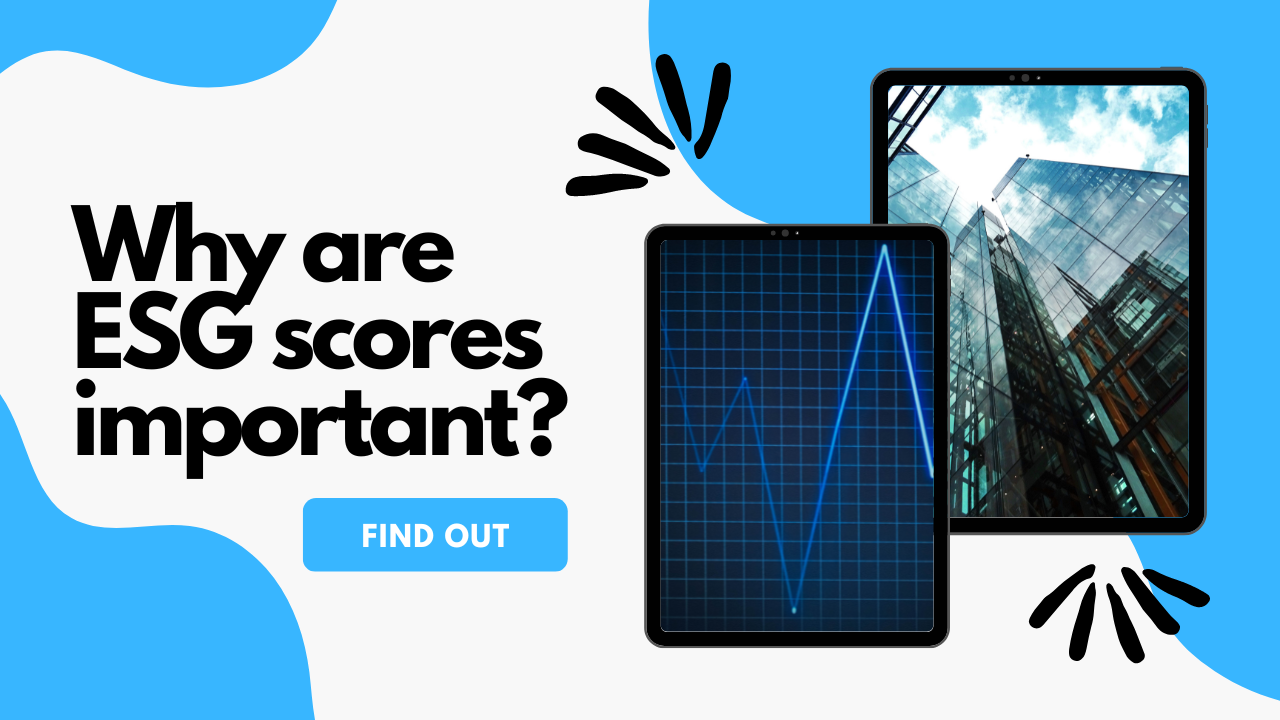Environmental, Social and Governance (ESG) FAQs
Environmental, Social and Governance (ESG) reporting is becoming increasingly important for companies to be able to report on. It highlights essential non-financial factors that need to be considered to determine the strength of a business and its ability to deal with challenges.
At amBX, we report on energy and carbon data from a lighting perspective. Lighting is the second-biggest consumer of energy in a building, accounting for approximately 40% of total usage. Therefore, it is important lighting data is included when reviewing the facilities, office spaces or buildings a company is operating out of or owns.
Historically, lighting has been difficult to integrate with; therefore, many consultants and platforms struggle to access this data. However, our ESG technology SmartCore offers a flexible digital twin architecture that allows us to present the data as well as simulate changes to gain an understanding of the best energy strategy before applying it to the physical asset. This can then add additional insight that forms part of the wider ESG score.
We also support employee wellbeing with circadian lighting and data collected through sensors such as air quality, occupancy, etc.
Below are some frequently asked questions relating to ESG. To discover more about how amBX can help, click here.
How are ESG scores calculated?
ESG scores are generated by reviewing metrics and data relating to environmental, social and governance factors. There is a range of third-party companies and consultants who offer this service. However, these different scoring systems don’t always use the same criteria to calculate the score. Therefore, two organisations with a score of 70 could be based on different factors. Critics say that much of the ESG data is subjective and will vary depending on the analyst and the company they employ. In general, ESG reporting includes factors such as carbon emission, energy usage, diversity and inclusion, employee wellbeing, cybersecurity, policies, executive compensation, etc.
How does ESG create value for my business?
This type of extra-financial reporting, or CSR reporting, creates value as it gives investors and company stakeholders peace of mind. It proves how strong the company is and how able it is to tackle challenges. Financial performance is commonly used to determine the strength of a company, but there are many other aspects that could lead to a company’s success or downfall, e.g., corruption, company culture, and environmental impact. ESG reporting creates value as a company can generate a single score that encompasses all of these areas and then develop an improvement strategy. It also shows that the company care about their environmental impact, their employees and fair governance, so it will build its credibility and feed into its brand values.
How is my company’s ESG measured?
Some factors that are measured when creating ESG scores are:
Environmental – energy usage, carbon emissions, recycling, waste management, etc.
Social – diversity and inclusion, ethical issues, employee satisfaction, employee wellbeing, etc
Governance – Executive pay, corruption, transparency, corporate culture, charitable donations, etc.
How do ESG scores affect equity valuations?
Having a good ESG score reduces the company’s risk, and it shows they are better able to deal with challenges; in turn, they are more likely to get investment and be seen as a credible entity. Stock valuations and positive ESG scores have been widely linked across multiple sectors showing that, on average, companies with a good ESG score received a valuation premium.
Which ESG framework should my business use?
As ESG has grown in popularity and importance, many companies and consultants have capitalised on the opportunity. This has resulted in a lack of standardisation with many different frameworks, and standards businesses can choose from. The scoring mechanism differs between each, which means a company with a score of 70 using one framework may be completely different if analysed using another framework. This lack of like-for-like comparison is problematic. Research by State Street showed only a 0.53 correlation between ESG scores for the same subjects from MSCY and Subanalytics (Alva 2021).
Some of the leading ESG standard and framework organisations are CDP, CDSB, GRI, IIRC and SASB (SABA); they have signed an agreement in an attempt to standardise the process through integrated reporting.
Which ESG factor is most important?
This is very much dependent on the type of business and sector, but ultimately they are all equally important; if any aspect of ESG is lacking, it poses a risk, whether that is to do with the way the company is run, a toxic culture that does not look after employees or a careless attitude towards environmental factors. Any of these can be hugely damaging for a company if they are not taken seriously. If this were to be exposed publicly, the company's reputation would be negatively impacted, and the value of the business could plummet as public and stakeholder trust is lost. This is regardless of the company being financially successful; in fact, this could do further harm if a company is profitable but is knowingly harming the environment, which could be viewed as even more damaging. Or if the company is profitable but is paying its employees less than they deserve or not complying with the gender equality act, it can cause unchangeable damage, and the business may struggle to recover from it.
Government targets for net-zero must be achieved by 2030; ESG sustainability helps to guide businesses, provide insight and an improvement plan. Some would argue the environmental factor is the most important because the climate change crisis we all collectively face must be taken seriously, and we must act now to stop irreversible damage.
Why is ESG reporting important?
Investors want to support companies with strong ESG scores, and in the UK, it will be mandatory for buildings to supply an ESG score. The UK’s Financial Conduct Authority has made it mandatory for premium listed companies to disclose in alignment with TCFD for the fiscal year 2021.
Steve J. Berexa, Global CIO Equity and Global Head of Research at Allianz Global Investors, states:
“Sustainability factors, such as climate change or demography, impact companies’ operating environments. It is, therefore, critical that companies provide a clear strategic view of the likely impact of such trends or factors on their business models. This will allow investors to understand how they are positioned and provide confidence that they are resilient and can, where possible, exploit opportunities from a changing environment.”
How does ESG impact smart buildings?
Buildings and facilities used by companies are a big part of ESG scores. Buildings account for 39% of carbon emissions; therefore, when measuring a company’s impact, its facilities should be considered to understand how much energy, carbon, and water is used, how efficiently it operates, and whether renewable energy sources are used, etc. Having a healthy, nice environment for employees to work in also strongly impacts the social aspect of ESG, e.g., air quality, ventilation, lighting, clean facilities, ergonomic furniture, etc. Data collected relating to environmental and social aspects of a building are essential to understand the current picture and allow the company to create a strategy that aims to improve with the aim of hitting net-zero targets by 2030.
It has also been shown that buildings that are green certified are able to change more in rent and retain their tenants while being better equipped to deal with challenges.
Knight Frank states, “We found a positive and significant effect of Very Good, Excellent and Outstanding BREEAM ratings on prime central London office rents – ranging from 3.7% to 12.3% premiums while controlling for other property characteristics. This is significant for occupiers, investors and developers alike to understand the impact green ratings have on income, a key contributor to a building’s value” (Knight Frank 2021).
How does ESG affect commercial real estate owners?
Large real estate owners need to prioritise ESG, as it becomes more important businesses will not want to lease space in a building that does not have a good score. Therefore they will struggle to attract and retain tenants, which will also harm their financial performance and their chances of getting investment as the building will be seen as high risk.
We discussed this with Andy Saull from CBRE on amBX – The Smart Building Podcast.
Andy discusses that if sustainability is not prioritised, building owners will leave it too late and “the cost of a deep retrofit will majorly outweigh the returns, banks will not loan against an outdated asset because it is currently unsustainable and underperforming. Hence, we end up having stranded assets in the market that no one wants to buy and no one wants to retrofit. We need to avoid this by acting and retrofitting before it’s too late”.
He also goes on to state that wellbeing is not only here to stay; it's here to take over. This impacts the S in ESG as it reviews how well employees’ needs are prioritised and, in turn, the satisfaction and retention rate.
"You work in your office for most of your working adult life. You can spend 9-10 hours a day in an office quite easily for five days a week. Yet we do not scrutinise it. Why? There's a wonderful statistic bandied around that 90% of the average occupier’s cost is on their staff, 9% on their rent, 1% on their utility bill. So, if we can start measuring an uplift in the productivity of their staff, that is financially far more viable than telling them about an energy-saving on the utility”.
Drop us a message to start discussing how we can form part of your ESG scoring system.

